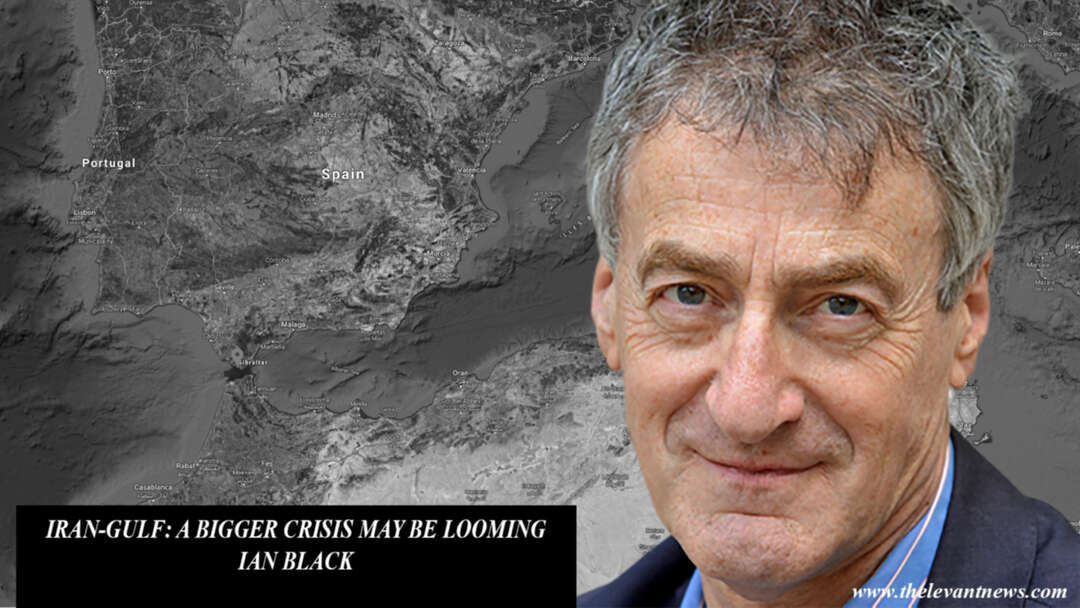-
IRAN-GULF: A BIGGER CRISIS MAY BE LOOMING

IAN BLACK
Over the last three months barely a day has gone by without some alarming piece of news involving ships in the Straits of Hormuz or the Gulf of Oman. Other relevant developments have been reported from Tehran, Washington or London. In one important chapter the action had taken place in faraway Gibraltar.
Britain has now agreed to join a US-led maritime task force designed to protect freedom of navigation in the Gulf – whether that sensitive waterway is described as Persian or Arabian. Previously the UK had said it wanted to join a European-led naval force to guarantee the unimpeded flow of one-fifth of global oil supplies. But Boris Johnson, the new prime minister, changed course.
That policy shift in London provides a clear hint about the future: Britain remains formally committed to the landmark 2015 nuclear agreement with Iran, along with France, Germany, Russia and China. But President Donald Trump’s controversial decision to abandon the deal least year has created a complicated and unstable new reality: his policy of “maximum pressure” on Tehran, by sanctions and other measures, has both affected ordinary Iranians and made it more difficult for supporters of the agreement to keep it alive.
Iran was especially angered by the seizure by British marines, on July 4, of the Grace I, a tanker passing through the Straits of Gibraltar. According to the UK government it was on its way to deliver oil to the Syrian port of Banias and was stopped because it was in breach of EU sanctions against Bashar al-Assad.
Tehran, however, saw it as an action taken in support of the US by the country it still sometimes refers to as the “Little Satan.” Retaliation was not long in coming. A British tanker, the Stena Impero, was diverted to Bandar Abbas by Iranian Revolutionary Guards. If the Straits of Gibraltar were not free, warned Jawad Zarif, Iran’s foreign minister, then neither would the Straits of Hormuz.
Looking back, the turning point was reached in April, when Washington terminated the waivers it had previously issued for countries wishing to buy Iranian oil. Attacks on foreign tankers in May and June – widely blamed on Iran - marked a significant escalation. Tehran had been adhering to the nuclear deal when Trump pulled out. Now it has breached it, though with carefully calibrated steps. But its other actions have raised the regional temperature – and the level of risk.
Germany has rejected the idea of taking part in a US-led naval force. France has not yet decided. China and South Korea are considering a US request. Britain’s decision was made in part because it no longer has the resources to carry out significant naval operations. It currently has just two warships in the Gulf.
Last week there was an intriguing statement from the Israeli foreign minister, Yisrael Katz: he told a parliamentary committee that his country was taking part in the US-led operation, most likely by providing intelligence. No comment was forthcoming from the US, Saudi Arabia or the UAE, probably because the Israeli minister was boasting about something that other interested parties prefer to keep secret. That provoked another warning from Iran about the destabilizing effects of foreign forces, and specifically, the unacceptable presence of the “Zionist entity” in the Gulf.
It has become increasingly clear that neither Washington nor Tehran wants all-out war. Trump has been criticized by hardline figures in his own administration for sending mixed messages to Iran – inviting Zarif for talks, and then imposing sanctions on him when he rejected the invitation. Critics also question the president’s decision not to retaliate when the Iranians shot down a US drone two months ago. But Iranian provocations and American miscalculations could still go badly wrong if they do not recognize each other’s red lines..
Iran has a long record of using allies or proxies across the Middle East, whether Hizbullah in Lebanon and Syria, the Houthis in Yemen or Shia militias in Iraq. The recent Emirati decision to scale down its forces in Yemen is seen by analysts as a grudging admission that Tehran may now be gaining the upper hand.
The larger question is whether new negotiations or conflict will follow if the 2015 deal is eventually declared dead. Iran has made clear that it will re-start its nuclear programme if that happens. It is reasonable to assume that Saudi Arabia would respond by acquiring nuclear weapons.
Israel – despite its policy of deliberate ambiguity – remains the only nuclear power in the Middle East. And it will want to preserve that monopoly. Back in 1981 it bombed the Osirak reactor Iraq and in 2007 the nuclear facility under construction at Al-Kibar in Syria. Trump’s inconsistency, Transatlantic tensions, European and Arab divisions and Iranian determination could yet produce a far bigger crisis than the current one.
You May Also Like
Popular Posts
Caricature
BENEFIT Sponsors BuildHer...
- April 23, 2025
BENEFIT, the Kingdom’s innovator and leading company in Fintech and electronic financial transactions service, has sponsored the BuildHer CityHack 2025 Hackathon, a two-day event spearheaded by the College of Engineering and Technology at the Royal University for Women (RUW).
Aimed at secondary school students, the event brought together a distinguished group of academic professionals and technology experts to mentor and inspire young participants.
More than 100 high school students from across the Kingdom of Bahrain took part in the hackathon, which featured an intensive programme of training workshops and hands-on sessions. These activities were tailored to enhance participants’ critical thinking, collaborative problem-solving, and team-building capabilities, while also encouraging the development of practical and sustainable solutions to contemporary challenges using modern technological tools.
BENEFIT’s Chief Executive Mr. Abdulwahed AlJanahi, commented: “Our support for this educational hackathon reflects our long-term strategic vision to nurture the talents of emerging national youth and empower the next generation of accomplished female leaders in technology. By fostering creativity and innovation, we aim to contribute meaningfully to Bahrain’s comprehensive development goals and align with the aspirations outlined in the Kingdom’s Vision 2030—an ambition in which BENEFIT plays a central role.”
Professor Riyadh Yousif Hamzah, President of the Royal University for Women, commented: “This initiative reflects our commitment to advancing women in STEM fields. We're cultivating a generation of creative, solution-driven female leaders who will drive national development. Our partnership with BENEFIT exemplifies the powerful synergy between academia and private sector in supporting educational innovation.”
Hanan Abdulla Hasan, Senior Manager, PR & Communication at BENEFIT, said: “We are honoured to collaborate with RUW in supporting this remarkable technology-focused event. It highlights our commitment to social responsibility, and our ongoing efforts to enhance the digital and innovation capabilities of young Bahraini women and foster their ability to harness technological tools in the service of a smarter, more sustainable future.”
For his part, Dr. Humam ElAgha, Acting Dean of the College of Engineering and Technology at the University, said: “BuildHer CityHack 2025 embodies our hands-on approach to education. By tackling real-world problems through creative thinking and sustainable solutions, we're preparing women to thrive in the knowledge economy – a cornerstone of the University's vision.”
opinion
Report
ads
Newsletter
Subscribe to our mailing list to get the new updates!






















